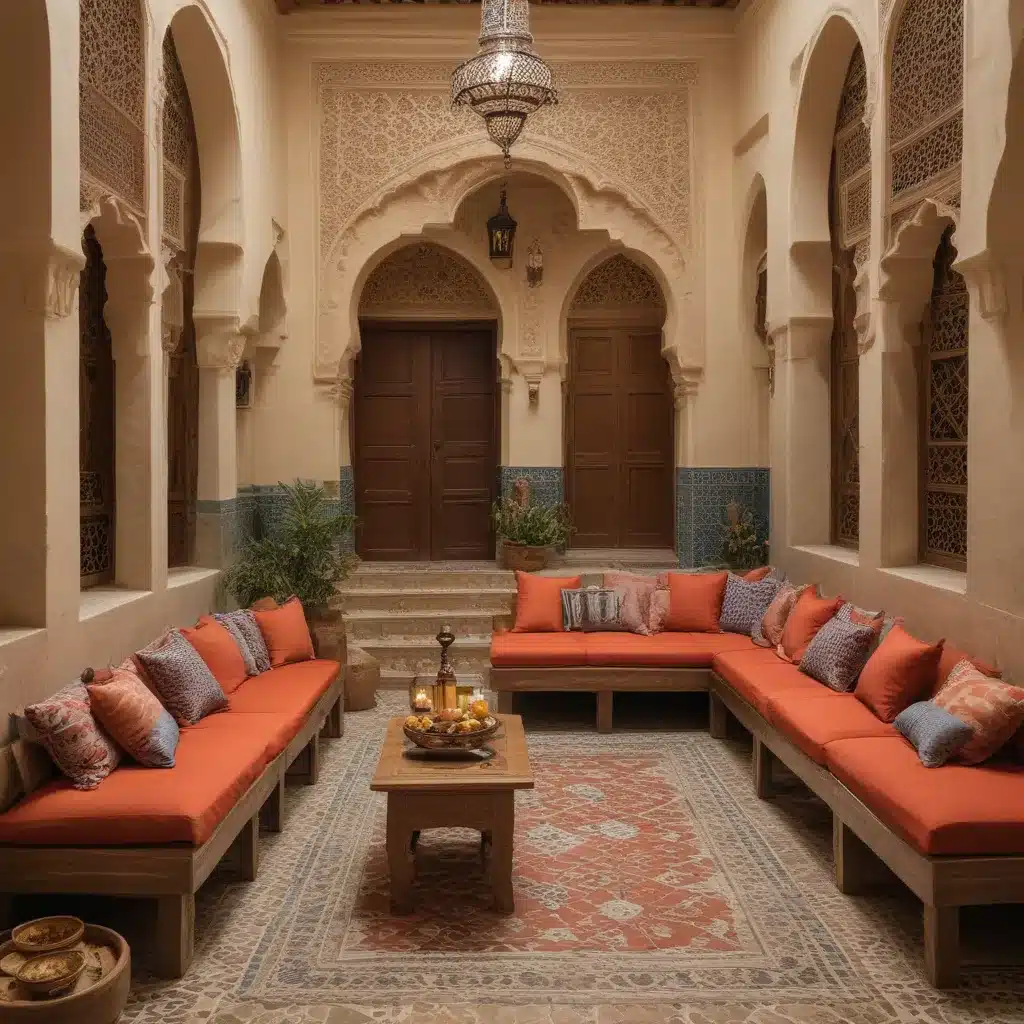
A Cup of Moroccan Hospitality
On a beautiful morning recently, I had the privilege of sitting with my lovely Moroccan friends on the outdoor terrace of a farmhouse in the Moroccan countryside. As we sipped on refreshing Moroccan mint tea, surrounded by stony ground, argan trees, and a canvas of blue skies and wispy white clouds, I was filled with a sense of awe and wonderment.
There was something truly magical about that moment – the intoxicating aroma of the freshly brewed tea, the skillful way it was poured from a height, and the warm camaraderie of our gathering. It was an experience that uplifted my spirit and left an indelible mark on my heart.
The ritual of serving mint tea in Morocco is not just about the art of tea-making perfected, but an intentional act of kindness and hospitality. From the traditionally handcrafted Berber teapot to the terracotta stand holding the boiling water above the coals, every element of the ceremony evokes a sense of old-world charm and graciousness.
The Artistry of Moroccan Tea
As I watched our host gracefully pour the golden tea with a steady stream from a great height, I was mesmerized by the sheer skill and precision involved. Keeping the arm raised high while holding a tray and pouring without spilling a single drop is a true testament to the mastery of this age-old tradition.
Beyond the technical prowess, the act of serving mint tea in Morocco is imbued with deep meaning and significance. It is a gesture of warmth, kindness, appreciation, and gratitude – a way to welcome visitors, friends, and family into one’s space and make them feel truly valued.
In fact, the serving of tea in Morocco precedes any business or social interaction and often marks the end of a meal. It is a ritual that reminds us to slow down, be present, and savor the simple joys of gathering together. As one scholar noted, “Bread simply has to be there, it is the tool to pick up food, the conveyor of a dish’s taste, the guarantor of physical satiation, and the basis of caring and hospitality.”
The Universality of Moroccan Tea
Interestingly, the tradition of Moroccan mint tea has no boundaries – it is not predicated by socioeconomic status and is as ubiquitous as drinking water, if not more so. Whether you’re in the bustling souks of Marrakech or the remote villages of the High Atlas Mountains, the offering of tea is a constant and deeply ingrained part of everyday life.
As I traveled through Morocco, I found myself bookmarking every major event, from buying my first Berber carpet to browsing the local markets, with a refreshing cup of mint tea. It was a defining characteristic of the country, woven into the fabric of its culture and hospitality.
The Ritual of Moroccan Tea
The ritual of Moroccan tea-making is a true masterclass in the art of hospitality. It begins with the boiling of water and the addition of gunpowder green tea leaves, followed by the gentle inclusion of fresh, crushed mint. The sugar is then added, but not stirred – instead, the tea is poured back and forth between the teapot and the glasses, creating a mesmerizing dance and a delightful foam on the surface.
As my guide Fatima explained, the higher the pour, the more respect and care the host is showing their guests. It’s a subtle yet powerful gesture that sets the tone for the entire experience.
Sipping the fragrant, sweet tea while savoring traditional Moroccan pastries is a truly immersive and sensorial journey. The act of slowly enjoying each sip, making eye contact with your companions, and engaging in leisurely conversation is a reminder to slow down and savor the present moment.
The Importance of Moroccan Hospitality
Hospitality is not just a cornerstone of Moroccan culture, but a way of life. As one writer eloquently stated, “The ritual of serving Moroccan mint tea for every occasion of encounter in Morocco is the epitome of the warmth and beauty of Moroccan hospitality.”
Whether it’s welcoming a stranger into your home, offering a weary traveler a refreshing cup of tea, or simply sharing a moment of connection over this age-old tradition, Moroccan hospitality is a reflection of the country’s deep-rooted values of generosity, kindness, and community.
In a world that often moves at a frantic pace, the Moroccan tea ceremony serves as a gentle reminder to slow down, be present, and savor the simple joys of life. It’s a tradition that transcends cultural boundaries and speaks to the universal human need for ritual, connection, and a sense of belonging.
Experiencing Moroccan Hospitality
As I reflect on my time in Morocco, the Moroccan tea ceremony stands out as one of the most meaningful and profound experiences I had. It was a window into a rich cultural heritage, a testament to the power of hospitality, and a deeply nourishing respite from the chaos of daily life.
Whether you’re planning a trip to Morocco or simply want to bring a bit of that magic into your own home, I encourage you to seek out opportunities to experience the Moroccan tea ceremony. Visit a local Moroccan restaurant, take a cooking class, or even try your hand at recreating the ritual in your own kitchen.
In doing so, you’ll not only be treated to a delicious and aromatic cup of tea, but you’ll also gain a deeper appreciation for the enduring importance of Moroccan hospitality – a tradition that has the power to warm the soul, foster connection, and create lasting memories.


